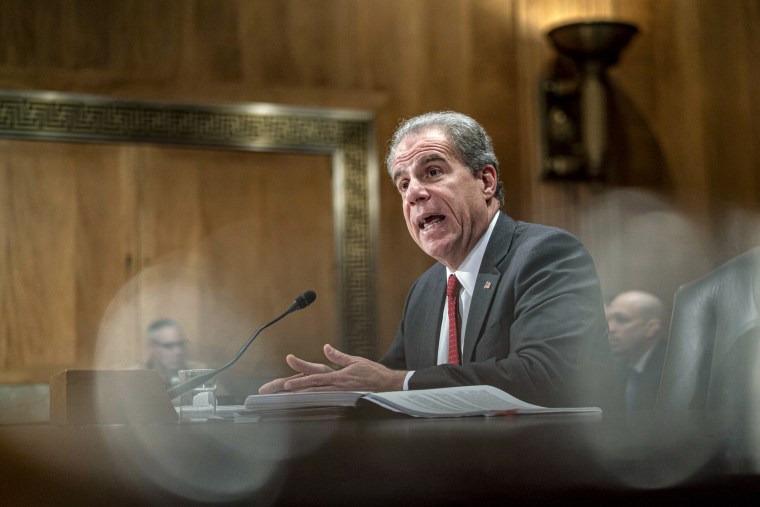The FBI has pledged to change its practices after the Justice Department's inspector general raised concerns about agents' use of pictures of female support staff members in sex trafficking investigations and "potentially placing them in danger of becoming the victims of criminal offenses."
In a report made public Monday, Inspector General Michael Horowitz found that no FBI policy required special agents "to obtain written informed consent" from support staff members when they use their pictures as bait online. The FBI accepted Horowitz's recommendations to initiate a formal policy.
Horowitz discovered the lack of a policy in an investigation of a special agent who was "alleged to have engaged in an inappropriate relationship with an FBI support staff employee," which included the agent's asking the employee to "provide him with provocative pictures of herself for online UC (undercover) operations."
"During the course of our investigation, the OIG learned that SAs sometimes used photographs of young female support staff employees to pose as minor children or sex workers to entice sexual predators on various social media websites," Horowitz's report said. "SAs" are special agents.
The support staff members "are not certified undercover employees or certified online covert employees," Horowitz said. The report does not specify how widespread the practice was, and it does not accuse the agents of having used the photographs against the employees' will or without their knowledge.
"In the instances we reviewed in connection with the OIG investigation, the employees' faces were blurred and the employees were clothed," the report said. "However, the SA who was the subject of the OIG's investigation did not document which employees were used, obtain written consent from the employees, document the websites on which the photographs were posted, or document when the photographs were posted. The SA said he was 'fishing' on social media sites but not recording which sites he used."
Furthermore, the report found, "the FBI had no documentation or information regarding whether the photographs still appear on the websites or how long the photographs appeared on the websites, during which time the photographs could have been — and potentially could still be — downloaded, copied, or further disseminated. The OIG believes that this conduct poses potential adverse consequences" for the non-undercover employees, "including potentially placing them in danger of becoming the victims of criminal offenses."
In a response letter, the FBI said it "fully accepted" Horowitz's recommendations and will implement changes to ensure that guidelines are in place. The FBI said that if such pictures are used in the future, it will have policies to ensure that the staffers and their supervisors are formally notified and that the photos are tracked and used "safely and appropriately."

